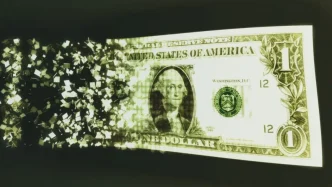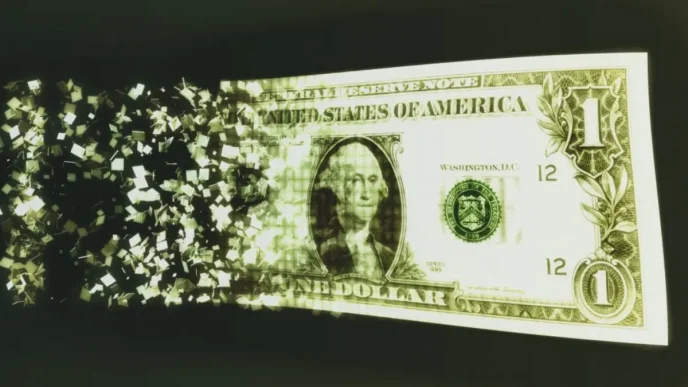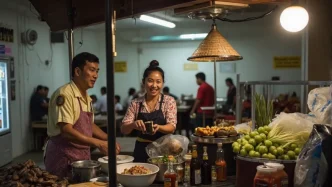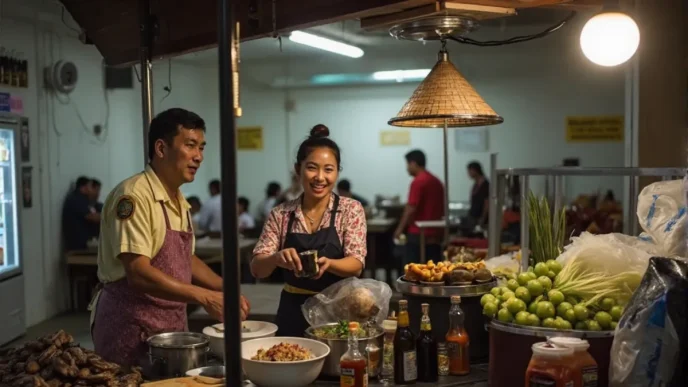Thailand’s recent decision to slash taxes on wine, aimed at boosting tourism and local businesses, has led to an unexpected surge in consumption—while costing the state millions in lost revenue. The policy, introduced earlier this year as part of a broader economic stimulus package, was intended to make Thailand a more attractive destination for international visitors and support the hospitality sector. However, with domestic consumption skyrocketing, critics argue the government miscalculated the fiscal impact, leaving a significant hole in public funds at a time when economic recovery remains fragile.
A Policy with Unintended Consequences
The tax cut, which reduced levies on wine by nearly 50%, was rolled out with much fanfare by the Thai government. Officials positioned it as a win for tourism, hoping to lure high-spending travelers to the country’s bustling cities like Bangkok and coastal hubs like Phuket. The move was also seen as a lifeline for restaurants and bars struggling to recover from the economic fallout of the COVID-19 pandemic. “We wanted to create a welcoming environment for tourists and boost local businesses” said a spokesperson for the Ministry of Finance in a statement to local media.
Yet, the policy has had a far broader impact than anticipated. Domestic consumption of wine, previously a niche market in a country dominated by beer and spirits, has soared. Retailers report a dramatic uptick in sales, with some Bangkok-based stores noting a 70% increase in wine purchases since the tax cut took effect. While this has been a boon for importers and local vendors, it has also meant that the expected revenue from alcohol taxes—historically a significant contributor to state coffers—has plummeted. Estimates suggest the government has lost upwards of 500 million Thai Baht (US$14 million) in the first six months of the policy, a figure that could grow if consumption trends continue.
Balancing Economic Goals and Fiscal Health
At the heart of the issue lies a fundamental tension between stimulating economic activity and maintaining fiscal stability. Thailand’s economy, heavily reliant on tourism, has struggled to regain its pre-pandemic momentum. The wine tax cut was part of a suite of measures designed to attract international visitors, alongside visa waivers and promotional campaigns. But while tourist arrivals have increased—reaching nearly 80% of 2019 levels in the first quarter of this year—the tax policy’s benefits appear to have disproportionately favored domestic consumers, who are buying wine at unprecedented rates.
Economists warn that the revenue shortfall could strain public finances, particularly as Thailand grapples with rising inflation and the need to fund infrastructure projects. “The government may have underestimated how price-sensitive Thai consumers are” said Dr. Somchai Ratanakorn, an economist at Chulalongkorn University. “Lower taxes meant more affordability, but the bulk of the consumption growth has come from locals, not tourists, which defeats the policy’s primary purpose.”
Adding to the complexity, the surge in wine consumption has raised concerns about public health. Thailand has long battled issues related to alcohol abuse, particularly in rural areas where cheap spirits dominate. While wine is often perceived as a “lighter” alternative, health advocates worry that increased access and affordability could exacerbate existing problems. The Ministry of Public Health has yet to release data on the social impact of the tax cut, but some NGOs have called for tighter regulations on alcohol advertising to mitigate potential risks.
Political Fallout and Policy Reversal?
The tax cut has not gone unnoticed in political circles, with opposition lawmakers seizing on the revenue loss as evidence of poor planning by the ruling administration. The Pheu Thai Party, which has championed economic populism in the past, has faced criticism for what some describe as a “short-sighted” approach. “This policy was supposed to help Thailand recover, but instead, it’s draining resources we desperately need for schools and hospitals” said opposition MP Narin Srisuk during a recent parliamentary session.
Public opinion, however, appears divided. In Bangkok’s bustling Khao San Road, a hub for tourists and locals alike, opinions on the tax cut vary. “I love that I can afford a decent bottle of wine now” said 29-year-old office worker Supaporn Chaiyapong, sipping a glass at a nearby bar. “But I also worry about whether the government can keep funding public services if they’re losing so much money.” Others, particularly in the hospitality sector, welcome the policy’s impact on business. “Our wine sales have tripled, and it’s bringing in a different kind of customer” said restaurant owner Krit Thanomkul. “We need policies like this to survive.”
Amid mounting pressure, there are whispers that the government may reconsider the tax cut. Sources close to the Finance Ministry suggest a partial rollback could be on the table, potentially raising taxes on certain categories of wine while maintaining lower rates for premium imports to target tourists. However, any reversal risks alienating both businesses that have benefited from the policy and consumers who have grown accustomed to cheaper prices. For Prime Minister Srettha Thavisin, already navigating a delicate political landscape, the decision could prove a defining test of his administration’s economic strategy.
Regional Context and Global Comparisons
Thailand’s experiment with alcohol tax cuts is not unique in the region. Neighboring countries like Vietnam and Malaysia have also tinkered with alcohol taxation to balance economic and social priorities. In Vietnam, for instance, high taxes on imported spirits have long been a source of revenue, though they’ve also fueled a thriving black market. Malaysia, meanwhile, has maintained strict controls on alcohol sales due to cultural and religious sensitivities, limiting the scope for tax-driven policies. Thailand’s more liberal approach stands out, but it also underscores the risks of misjudging consumer behavior in a diverse and dynamic market.
Globally, other nations have faced similar challenges with alcohol tax policies. In Australia, a temporary cut in beer taxes in 2020 led to a spike in consumption but failed to deliver the expected economic boost, prompting a swift policy reversal. The European Union, too, has grappled with harmonizing alcohol taxes across member states, with countries like France advocating for lower rates on wine to protect cultural industries, while others push for higher taxes to curb public health issues. Thailand’s experience could serve as a cautionary tale for policymakers worldwide, highlighting the need for robust data and modeling before implementing sweeping tax changes.
Looking Ahead: Can Thailand Find a Middle Ground?
As the debate over the wine tax cut unfolds, the Thai government faces a critical juncture. On one hand, the policy has undeniably boosted certain sectors of the economy and made wine more accessible to a broader swath of the population. On the other, the fiscal cost and potential social consequences cannot be ignored. With budget discussions looming later this year, officials will need to weigh whether the short-term gains justify the long-term losses—or if a more targeted approach, perhaps focusing on tourist-specific incentives, might yield better results.
For now, the streets of Bangkok and beyond are awash with affordable wine, a small but symbolic marker of Thailand’s broader economic ambitions. Whether this experiment will be remembered as a bold innovation or a costly misstep remains to be seen. As policymakers, businesses, and citizens grapple with the fallout, one question lingers: can Thailand strike a balance between opening its markets and safeguarding its future?
















